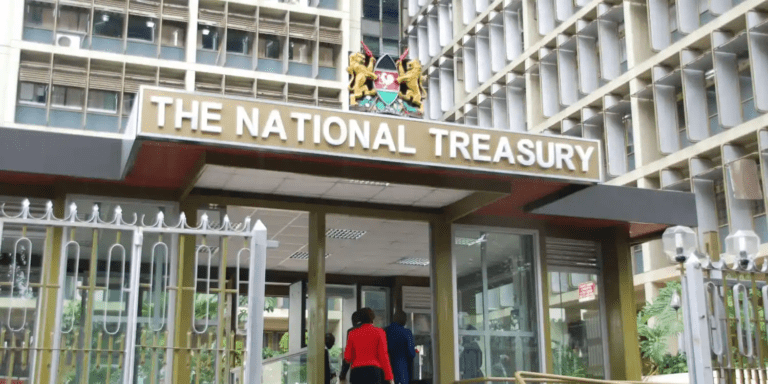
The much-anticipated Finance Bill 2025 is finally out, aiming to introduce sweeping reforms that will ease the tax burden on Kenyans while enhancing revenue collection and accountability. The release follows a wave of misinformation on social media, with some circulating false proposals designed to incite public unrest.
Notably, the timing of a recent BBC documentary has also raised eyebrows, with critics accusing it of presenting a biased narrative that seeks to discredit the government. Officials have dismissed the claims as part of a coordinated effort to destabilise the country and tarnish the government’s image.
However, President William Ruto’s administration has assured Kenyans that this year’s Finance Bill carries tangible benefits.
One of the most impactful changes is a proposal requiring employers to automatically apply statutory reliefs—such as Social Health Insurance, Housing Levy, and mortgage deductions—before calculating Pay As You Earn (PAYE). This change will result in lower income tax for employees, improve tax administration, and eliminate long delays in tax refunds by the Kenya Revenue Authority (KRA).
The bill also proposes measures to curb fraudulent tax refund claims, particularly targeting companies that have been exploiting loopholes to claim billions from public coffers. Authorities believe closing these gaps will save the country significant resources, which can be redirected to development projects such as roads, schools, and hospitals.
In a significant move, pensioners will no longer pay taxes on their retirement benefits, including both lump sum and monthly payments. This tax exemption will now apply to private insurance schemes as well, promoting financial independence among retirees.
To simplify accounting for small businesses, the bill allows full deduction of tools and equipment costs—such as utensils—within the same financial year. This streamlining will reduce administrative burdens, especially for small enterprises.
Moreover, the bill aims to expedite tax refunds to reduce disputes and ensure better liquidity for businesses and government services.
To rein in excessive government spending, the fiscal deficit is set to reduce to 4.5 percent of GDP in the 2025/26 financial year. This move is in line with international standards and is expected to ease the country’s reliance on debt.
Content creators, particularly the youth, can celebrate the scrapping of the digital service tax, which is seen as a boost to income and innovation in the digital space. Meanwhile, per diem allowances in the private sector have been increased from KSh2,000 to KSh10,000 and made tax-free, helping formal sector employees keep more of their earnings.
Cryptocurrency traders also stand to benefit, with the tax rate on digital assets halved from 3 percent to 1.5 percent. This reduction is expected to boost earnings and make Kenya more attractive to fintech investors.
In line with global tax principles, the bill introduces the Significant Economic Presence (SEP) model for digital multinationals operating in Kenya. This shift ensures large platforms contribute fairly without burdening users, aligning with International Monetary Fund guidelines.
The bill also targets refund fraud in the manufacturing sector, citing cases where companies claimed up to KSh47 billion in bread-related refunds. To combat this, KRA will be empowered to use artificial intelligence and data analytics to detect fraud, while stiffer penalties for false refund claims have been proposed.
Additionally, the discretionary powers of the National Treasury to grant tax waivers will be limited, helping curb misuse and corruption.
The bill introduces time-bound procedures for processing refunds and appeals, enhancing accountability. It also proposes new enforcement penalties for non-filers and defaulters, which should improve compliance and raise revenue.
A long-standing loophole—where appeals to the KRA tribunal delay tax payment—will be addressed by requiring that tax due be paid unless a court grants an explicit stay. Currently, appeals worth over KSh170 billion have stalled revenue collection.
In a bid to revive Kenya’s competitiveness in aircraft maintenance, the bill proposes tax exemptions on aircraft repair parts, a move that could create over 3,000 jobs in the aviation sector.
Fintech start-ups will also benefit from a simplified onboarding process, which is expected to support Kenya’s position as Africa’s top destination for start-up capital.
Overall, the Finance Bill 2025 represents a strategic shift—focusing not on new taxes, but on fairness, enforcement, efficiency, and economic growth.
It seeks to enhance public trust, reward compliance, reduce corruption, and create jobs—especially for the youth. As Nobel laureate Joseph Stiglitz once said, “A country’s tax policy is ultimately a statement about its values.”